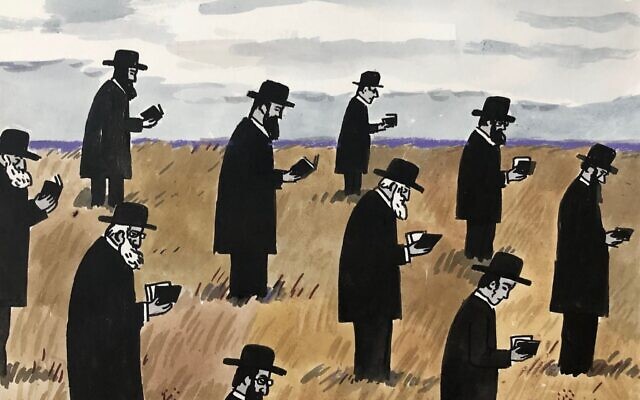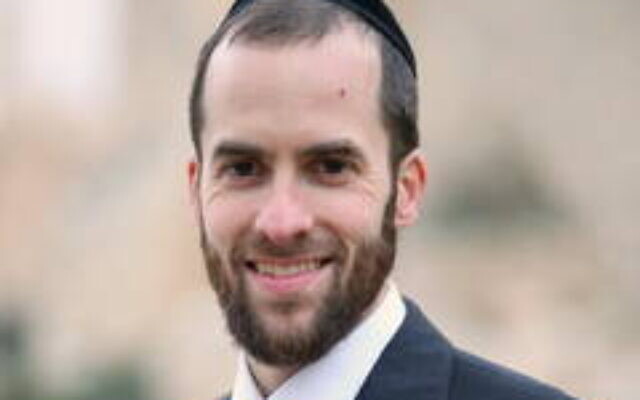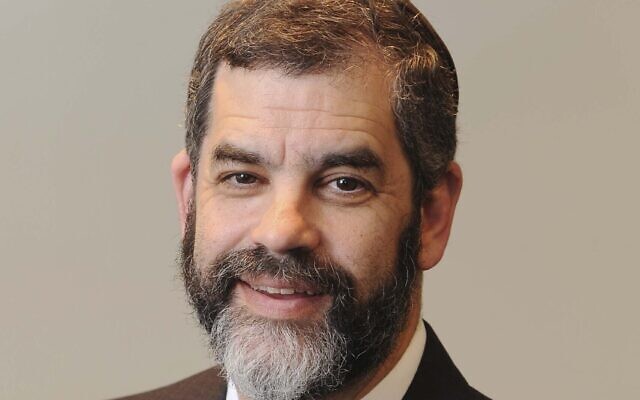Orthodox Congregations Plan Outdoor Minyans
Rabbis warn that failure to follow the rules set down for these prayers may delay the eventual reopening of synagogue buildings.
Dave Schechter is a veteran journalist whose career includes writing and producing reports from Israel and elsewhere in the Middle East.

When each is ready, and “on a severely limited basis,” Orthodox congregations in Atlanta will offer a single daily outdoor minyan, either for Shacharit (morning prayers) or Minchah/Ma’ariv (afternoon and evening), but not on Shabbat.
The doors of Atlanta synagogues that closed in mid-March as a precaution against spread of the COVID-19 have yet to reopen.
“Not all shuls will function on the same timetable, each one will determine the exact date for partial re-opening based on its physical set-up, membership, and ability to ensure compliance with established protocols. The ban on privately held minyanim continues,” read a letter sent in the name of the following rabbis:
Rabbi Ilan D. Feldman, Congregation Beth Jacob
Rabbi Dov Foxbrunner, Congregation Beth Jacob
Rabbi Yehuda Boroosan, Congregation Netzach Israel
Rabbi Binyomin Friedman, Congregation Ariel
Rabbi Menachem Gurary, Chabad Israeli Center
Rabbi Karmi Ingber, The Kehilla in Sandy Springs
Rabbi Shmuel Khoshkerman, Congregation Ner Hamizrach
Rabbi Yossi Lerman, Chabad of Gwinnett
Rabbi Levi Mentz, Chabad of Forsyth
Rabbi Hirshy Minkowicz, Chabad of North Fulton
Rabbi Yale New, Chabad of Toco Hills
Rabbi Yossi New, Chabad of Georgia-Congregation Beth Tefillah
Rabbi Dr. Don Seeman, New Toco Shul
Rabbi Ephraim Silverman, Chabad of Cobb
Rabbi Adam Starr, Congregation Ohr HaTorah
Rabbi Eliyahu Schusterman, of Chabad Intown, said that his name inadvertently was left off the letter.
“We are dealing with a volatile, sneaky, and deadly virus. This first step in partially resuming minyan should not be seen as a signal to let our guard down. We must continue to practice social distancing and restrictions on hosting for Shabbos and visitors from out of town,” the rabbis’ letter said.
The restrictions include: registration before attending, no access to synagogue buildings (including restrooms), 15 people maximum per service, no children, strongly discouraging people age 65 and older from attending (even to say Kaddish), bringing your own prayer book, no out-of-town visitors, and no minyan in the event of rain.

Beth Jacob members from Rabbis Ilan Feldman and Dov Foxbrunner.
Congregation Beth Jacob began holding “a very small minyan” in its parking lot May 18, restricting attendance to those in the year of mourning. The next evening the congregation began a Minchah/Ma’ariv service.
In a letter to its congregants, Beth Jacob said, “This is only for male Shul members over age 13 and below age 65.”
Participants are required to park their cars in designated spots and stand by their cars. Those attending must not have traveled outside of Georgia in the previous 14 days, nor exhibited any COVID-19 symptoms in that period.

Beth Jacob members from Rabbis Ilan Feldman and Dov Foxbrunner.
“Once assigned to a minyan, participants will only attend that same minyan during the 8 day period of this framework and will not attend any other minyan either at Beth Jacob or any other institution. There will be another registration period before Shavuos,” the letter from Rabbis Ilan Feldman and Dov Foxbrunner stated.
“Our progress on trying to come closer to entering our beloved shul depends on continued adherence to social distancing guidelines already in place. This situation continues to be very dangerous; any easing of discipline on our part can endanger others, and slow progress in returning to shul,” the Beth Jacob letter said.
A weeknight Minchah/Ma’ariv minyan at Ohr HaTorah was to begin May 21, in the parking lot behind the synagogue.
“Our congregation is blessed that we all enjoy each others’ company, and it has been months since we have been able to socialize. Just the same, I want to emphasize that the Minyanim are not social events, and attendees should not congregate before or after davening,” read a letter from Rabbi Adam Starr.
At Ohr HaTorah, “Both men and women are welcome to register to attend, although we Halachically require a minimum of 10 men. Priority to be among the 15 registered per minyan will be given to those who are in their year of mourning or observing a yahrzeit, so that they may recite Kaddish,” the letter said.
“I recognize that the age restriction, especially, will exclude many who regularly attend our daily minyan. As hard as this is, we are doing this with your safety first and foremost in mind. We will be Zooming these minyanim so that many more people can participate, and once again be able to hear the words of Kaddish and Kedusha, which we have not heard for many days,” the letter said.

Starr’s letter included a caution: “This very ‘soft opening’ of the shul should, in no way, be interpreted as signaling an easing of social distancing in the community. We still need to maintain all social distancing protocols which have been in place since before Pesach.”
- Coronavirus
- COVID-19
- social distancing
- minyan
- Orthodox
- Rabbi Ilan D. Feldman
- Congregation Beth Jacob
- Rabbi Dov Foxbrunner
- Rabbi Yehuda Boroosan
- Congregation Netzach Israel
- Rabbi Binyomin Friedman
- Congregation Ariel
- Rabbi Menachem Gurary
- Chabad Israeli Center
- Rabbi Karmi Ingber
- The Kehilla in Sandy Springs
- Rabbi Shmuel Khoshkerman
- Congregation Ner Hamizrach
- Rabbi Yossi Lerman
- Chabad of Gwinnett
- Rabbi Levi Mentz
- Chabad of Forsyth
- Rabbi Hirshy Minkowicz
- Chabad of North Fulton
- Rabbi Yale New
- Chabad of Toco Hills
- Rabbi Yossi New
- Chabad of Georgia-Congregation Beth Tefillah
- Rabbi Dr. Don Seeman
- new toco shul
- Rabbi Ephraim Silverman
- chabad of cobb
- rabbi adam starr
- Congregation Ohr HaTorah
- Rabbi Eliyahu Schusterman
- of Chabad Intown



comments